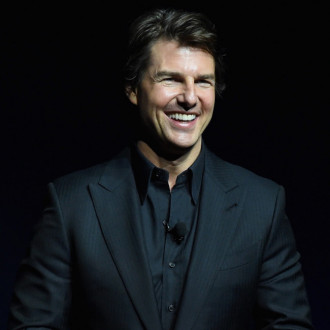'We Screwed Up': The Atlantic Removes Scientology Advertorial
By Lorna Greville in Lifestyle / Showbiz on 16 January 2013
Scientology has a really bad image commercially. Despite having A-star celebs as some of its most devoted clients such as Tom Cruise, no one really likes it. Which is precisely why when The Atlantic allowed a Scientology 'advertorial' to run on their site, there was a significant amount of backlash.
The website then decided to take it down and, as Ta-Nehisi Coates, one of their senior editors said, he thinks "the fact this troubled so many people is actually evidence of The Atlantic's brand strength." Adversely, it seems very clear that it was troubling precisely because Scientology itself is troubling.
The 'religious' movement have come up against great criticism for a variety of criminal acts, trying to force media and social media to suppress criticism of the religion (Google, for instance), plus the allegations against a leader of the organization accusing him of beating and demoralizing his staff.
Furthermore the fact that it is recognised as a religion in only a small handful of countries, and seen only as a commercial venture in most is worrying regarding the potential emotional and financial exploitation of its patrons. It's not difficult to see why readers of the Atlantic would not want to be party, in any way, to such an organisation.
The paid-for 'sponsored' article was praise filled for the 'religion' and documented its year of achievement, 2012, and endless praise for the group's leader, a man named David Miscavige.
Thankfully, now they have taken in down. In their statement regarding their choice to remove the advertorial, they admitted "We screwed up." Adding, "It shouldn't have taken a wave of constructive criticism -- but it has -- to alert us that we've made a mistake, possibly several mistakes... [W]e have decided to withdraw the ad until we figure all of this out. We remain committed to and enthusiastic about innovation in digital advertising, but acknowledge--sheepishly--that we got ahead of ourselves. We are sorry, and we're working very hard to put things right."
Contactmusic
Movies and Trailers

American Made Movie Review
An enjoyably freewheeling tone and Tom Cruise's star wattage combine to make this an entertaining...

The Mummy Movie Review
To launch their new Dark Universe franchise, Universal has taken an approach that mixes murky...

American Made Trailer
From a very young age, all Barry Seal had wanted to do was fly and...

The Mummy - Featurettes, Clips and Trailer
During a deadly military operation in Egypt, an explosion uncovers an overwhelming secret buried in...
Advertisement















